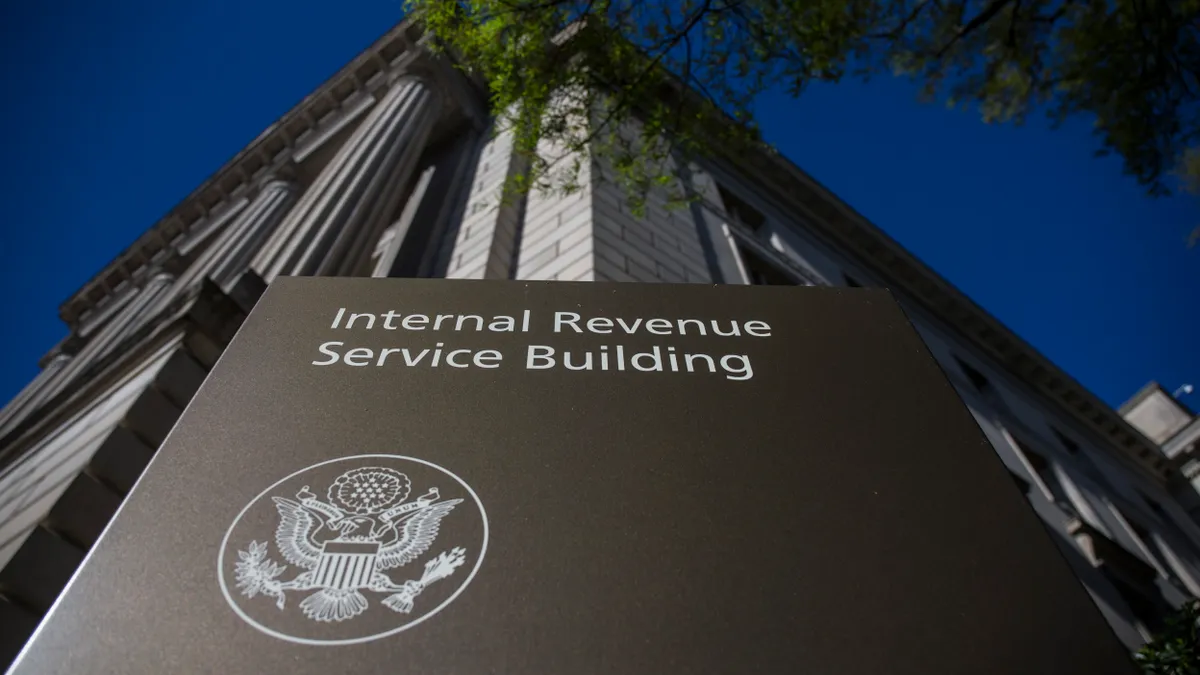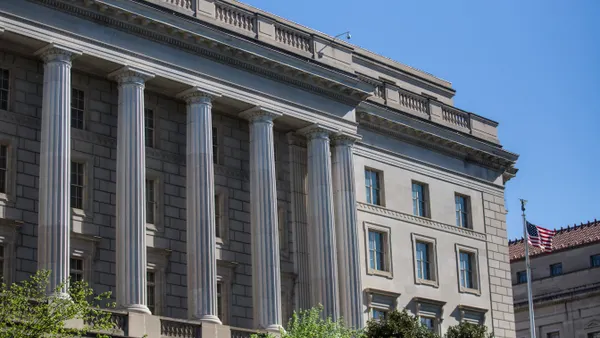Dive Brief:
- A Biden administration plan to spend $80 billion during the next 10 years to step up Internal Revenue Service corporate and individual tax enforcement would yield $200 billion in additional gross revenue, according to a Congressional Budget Office estimate, or 59% less than the $317 billion estimate by the Office of Management and Budget (OMB).
- The payoff from higher enforcement spending may wane over the decade as taxpayers “adopt new ways of evading detection” and the IRS in the later years achieves less return from lower-priority improvements, according to non-partisan agency CBO.
- Tougher enforcement is just one way the Biden administration plans to increase corporate and individual tax revenue by $711 billion in the next decade. Under the plan, the IRS would also replace 50-year-old core technology, improve data analytics, regulate paid tax preparers, increase penalties for corporate and individual tax cheats and set new information-reporting requirements.
Dive Insight:
The IRS budget has shrunk by about 20% in the past decade, prompting a decline in the number of specialized auditors and other critical staff, and increasing the annual difference in taxes owed and taxes actually paid to $600 billion in 2019, the Treasury Department said when announcing its proposed IRS enforcement budget in May.
Biden’s effort to strengthen IRS enforcement lost ground in July when Republican senators withdrew support for $40 billion in IRS funding in a $1 trillion infrastructure bill that passed the Senate on Aug. 10. Leading Senate Democrats plan to increase the IRS budget as part of a $3.5 trillion spending bill that they aim to pass based on their single-vote majority.
The CBO findings, when compared with the OMB forecasts, do little to advance Biden’s plan to crack down on corporate and individual tax cheats.
Based on the CBO findings, every additional dollar spent on enforcement would yield an average return on investment (ROI) of $2.50 — substantially less than the estimate of 4-to-1 ROI by the OMB, according to the Committee for a Responsible Federal Budget (CRFB).
Still, at a time of record federal deficits, “one of the most fair and efficient ways for policymakers to raise revenue would be to close some portion of the ‘tax gap,’” or the difference between the amount of taxes owed and actually paid, the committee said. “There is simply nothing partisan about ensuring people pay the taxes they already owe.”
Large companies often draw the most fire for minimizing taxes. At least 55 large U.S. companies paid no federal corporate tax in 2020, according to the Institute on Taxation and Economic Policy.
“Giant corporations have an evermore complex set of schemes that they use to reduce their taxes — with many of America’s largest and most profitable corporations paying nothing in taxes,” according to an Aug. 10 letter to IRS Commissioner Charles Rettig from Democratic Sens. Elizabeth Warren (D-Mass), Bernie Sanders (D-VT) and Sheldon Whitehouse (D-RI).
Outright tax evasion is rife among smaller businesses, the CRFB said.
“Most of the gross tax gap — 58% by our estimate — comes from unpaid or underpaid business and self-employment income taxes,” the committee said. Pass-through entities such as sole proprietorships, partnerships and S corporations account for 49% of the tax gap.
“While taxes are withheld from wages when they are paid and are at least reported for most other types of ordinary and capital income, business income (and especially self-employment income) is effectively reported on a voluntary basis with little, if any, third-party verification,” the committee said.
The administration’s IRS spending plan would push up the IRS budget 90% and more than double its staff by 2031, CBO said.















